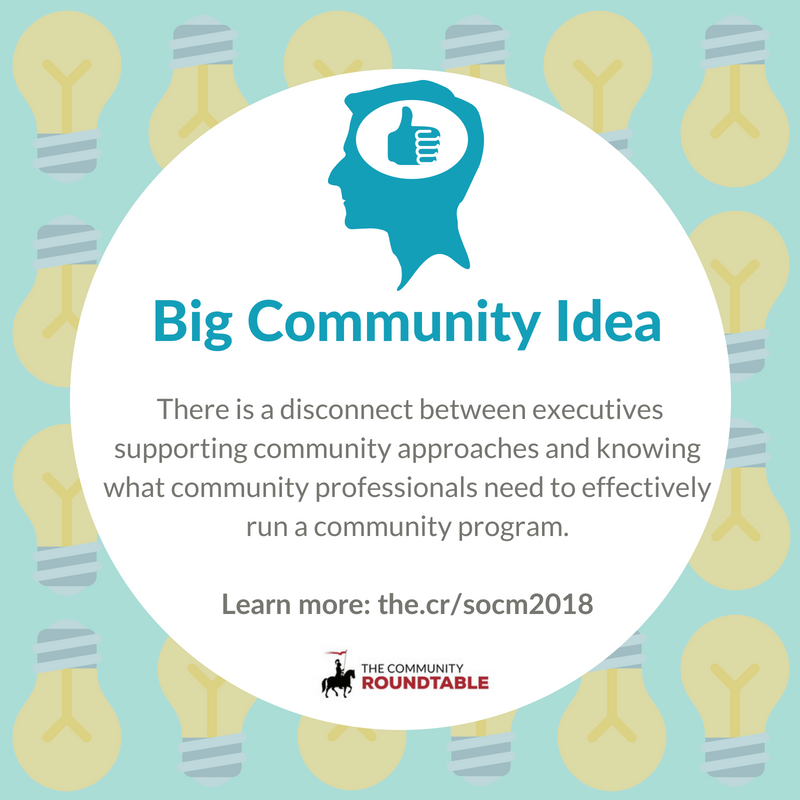 We’ve talked about how community is creating value, but community professionals are burnt out due to their “hidden” work. We’ve also discussed how community is creating high ROI and empowering individuals, but ROI is primarily being used defensively rather than to attain more resources. While there are still some concerns and areas that should be improved upon, there is much to be optimistic about, as shown through executives, a group who are being seen as overwhelmingly supportive of community approaches.
We’ve talked about how community is creating value, but community professionals are burnt out due to their “hidden” work. We’ve also discussed how community is creating high ROI and empowering individuals, but ROI is primarily being used defensively rather than to attain more resources. While there are still some concerns and areas that should be improved upon, there is much to be optimistic about, as shown through executives, a group who are being seen as overwhelmingly supportive of community approaches.
Executives are Eager to Support Community Approaches
In the State of Community Management 2018, we asked respondents how their executives feel about community approaches at their organization and 68% said that they have executives that feel positively about community. That 68% ranges from executives that are all in and already quite supportive to those that see potential in these approaches.
In comparison, in the State of Community Management 2017 , 56% of respondents saw their senior leaders as supportive or very supportive. Over the past year, that percentage increased 12%.
Executives are seen as being more supportive and reacting more positively toward community approaches as time progresses, and this reflects how successful community programs are becoming. But, while community programs are showing that success, we also know that they are not getting the recognition they deserve, so why is that?
Community Managers Must Engage Stakeholders
There is a disconnect between executives supporting community approaches and knowing what community professionals need to effectively run a community program. Executives see the success but do they truly understand it?
In order to enable executive and stakeholder understanding, community professionals must engage these people in conversations about how they can help the community program. In our own client work and through discussions in TheCR Network, we’ve seen a primary challenge for community professionals be that executives are philosophically supportive, but they don’t know what community teams need at a practical level. In order to bridge that gap, community teams must use this disconnect as an opportunity to identify and communicate specifics as well as initiate conversations with stakeholders about how they can help in a more direct and concrete way.
Executives Need to See How to Help
Yes, community programs still need a complete strategy, but they also need funding to be able to have that fully-fledged strategy. That’s where executives come in.
If community professionals are generating high value and intend to use this value to move their community forward, they need to talk to executives using their terms. These executives clearly see potential, but they also need to understand how to help.
So the question is, what do executives need to see in order to give funding?
Read about what we suggest presenting, as well as how to get that information and data, in the State of Community Management 2018.

